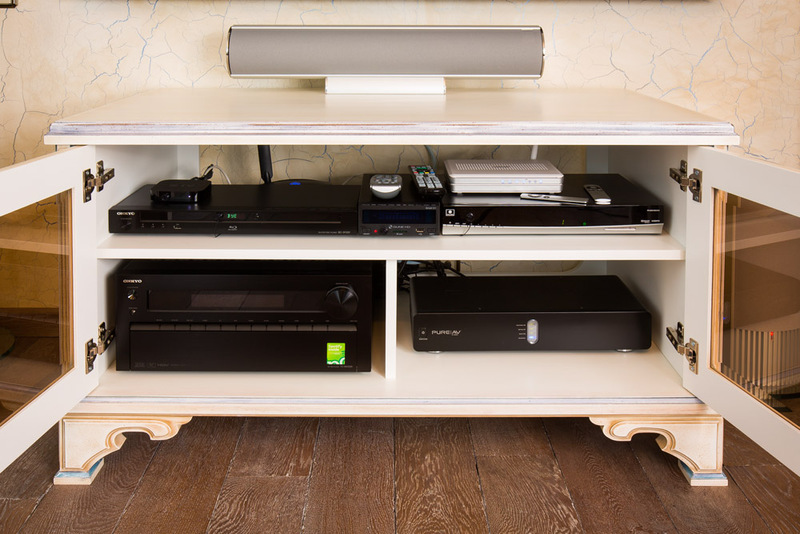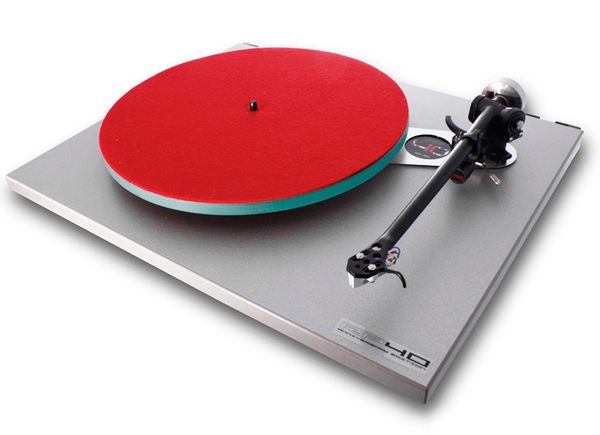"Musical fast food": How can a massive product sound

In the 27th edition of the Sound podcast, along with Timofey Shikolenkov, director of marketing and business development in Audiomania, we continue to discuss the differences between modern music and the old ones.
[ Read more about the Sound podcast ] [ Listen to this release ]
')
Other podcast releases
- [ read ] [ listen ] Old new sound: Opinions of the engineer and music lover;
- [ read ] [ listen ] Answers to questions from podcast listeners;
- [ read ] [ listen ] Discuss audio and video formats;
- [ read ] [ listen ] How a good sound changes a way of life;
- [ read ] [ listen ] Who may be interested in the development of acoustics;
- [ read ] [ listen ] Music lovers, network players and built-in speakers;
- [ read ] [ listen ] Every engineer wants to make an S-90;
- [ read ] [ listen ] Simple words about headphones and DACs;
- [ read ] [ listen ] Talking about vinyl: Myths, opinions and current situation;
- [ read ] [ listen ] Answers to questions from the podcast “Sound”;
- [ read ] [ listen ] Discuss the nature of the different sound of acoustics;
- [ read ] [ listen ] Acoustics for the background sound of the premises;
- [ read ] [ listen ] Answers to questions from podcast listeners;
- [ read ] [ listen ] We are talking about home theaters;
- [ read ] [ listen ] Interiors for sound;
- [ read ] [ listen ] Interfaces and cables;
- [ read ] [ listen ] Simple words about digital and analog sound;
- [ read ] [ listen ] Home speakers and questions;
- [ read ] [ listen ] The opinion of the engineer: How to create your ecosystem of sound;
- [ read ] [ listen ] Audio quality: Should I trust "beautiful graphics" and reviews in the press;
- [ read ] [ listen ] Answers to questions from listeners;
Dmitry: It is believed that old music stands out from the background of modern, popular music that may sound better, more interesting, have hidden or very noticeable artifacts. There is a myth about intentional “simplification” of music by studios and producers. Is it a myth or a reality? Where to look for good music?
Timofey: Let's start with what studios do. This will be a look from a marketing point of view. Music is a product. It happens, we get it for free, sometimes - for a fee, somewhere in the appendage to it we also get advertising. Studio - the manufacturer of this product. She packs it in a beautiful box, makes some version of her, changes something, somehow squeezes, considering who is going to sell it.
Despite the fact that a whole generation of people has grown up who believe that music should be free, the whole music industry exists, lives and sells its product. Selling something, it is impossible not to think about the target audience. Who on what will listen to the mass modern music without meaning in the text and with a simple musical rhythmic series, usually electronic?
Will listen to young people at a very inexpensive technique. And it should sound cool. Not good and detailed, but cool! When we listen to a musical composition on our acoustics, everything sounds a little different. When preparing the material in the studio, it is taken into account where it will be bugged. If it is tapped on cheap equipment, certain frequencies are “bulged out”, which are not enough on this equipment. Use lossy compression.
The conditions and goals of listening are very different. Let's try to make a three-dimensional matrix. Horizontally there will be listening methods, tasks, vertically - quality, along the third axis - listening material. As the source data - modern music, which is most often heard as a background.
Dmitry: So, we will not find those versions of modern music that are unsuitable for radio, for iTunes, which saves us, in part, from the uniqueness and original sound that was in the studio. Is it worth striving for this sound?
Timofey: Modern music should also be shared. On us from all common channels and from the vast majority of radio stations around the world, there is a stream of consumer goods, but there are also separate channels with good music. This is not to say that all modern music sucks. The market for music that you can actively listen to while enjoying is also big.
People listen to a variety of genres. For example, we have lovers in the company who listen to heavy metal for pleasure. This music is not mass, as well as classical, and very difficult to play. We need good, not cheap equipment to reproduce it well, to hear the instruments, vocals.
On a cheap instrument, you can listen to any serious music as a background, but you cannot catch the nuances and get emotions, they simply do not arise. If you include good music on good hardware, this can be another way to check the hardware itself and the original recording. It will be impossible to do something else.
We'll have to stop, sit down and listen.

Bookshelf speakers Arslab Old School Superb 90
Dmitry: The flow of details, nuances will not leave a person indifferent.
Timofey: Yes, at this moment it will be impossible to do something. I always liked “goosebumps” to define this moment, such sensations can be experienced in the showroom .
Dmitry: There is a myth associated with the formats. People often say that the sound of old songs is attractive and unique, which can not be transferred to CD-format. These qualities are lost due to the carrier and compression.
Timofey: There is such a thing as “nostalgia”. People remember pleasant events from the past and associate them with something.
For example, there are old songs that cause people to have pleasant memories. My wife is a man of the 90s, and I am of the 80s. We have a lot of intersections in music, but it so happens that I don't like the composition that I liked, and I wonder how she can listen to it.
It turns out that the conversation is not about how it sounds, not about the quality in which it was recorded and reproduced. We are talking about the emotions that we experienced then and now. Including the composition, we test them again. Everything is based on memories.
We conducted an experiment and included people with one composition in different qualities. We took a high-resolution lossless and converted it to a CD resolution. For some reason, people liked the CD version more. It would seem that Hi-Res should be better.
Probably, there is the effect of rejection, polished to a shine, perfect music, alien to people. Music is a variety of sound vibrations, not always perfect. The industry runs after the numbers: megapixels, megahertz, megabytes, terabytes. People are accustomed to progress, and people demand it.
Dmitry: It turns out that if a person hears more details, it is not a fact that he will get more pleasure from listening to music.
Timofey: The rational side of our brain says that everything should be perfectly clean, without interference, clearly, with high resolution, with perfectly even frequency response. The other half of our brain perceives it badly.
Dmitry: Maybe from this point of view, the old compositions are more familiar and lively perceived at the expense of errors in recording?
Timofey: Yes. Here are all the factors together. It is difficult to say what is more important. We have already said that music is a product. In humans, the sound-reproducing apparatus was not of such a class as it is now, the possibilities are different.
Studios, releasing the product to the market, were guided by the fact that it will be reproduced on the equipment of those years. Nobody heard the deep bass, which everyone now likes and can be reproduced even with inexpensive headphones. Next came the digital equipment, it grew out of the concept of Hi-Fi.
Music began to change "under the equipment." There are many "digital" ways. In the early 2000s, synthesizers had already appeared that sounded with a claim to emulate physical processes taking place inside musical instruments. Digital technology, of course, helped.
Real instruments sound nicer, but not better. There is a very fine line here. What's better? Perfectly played piece without flaws or natural live sound of a musician playing an instrument. Paradox, but it is fun. Vivacity, naturalness inspires us.
Dmitry: Can a listener of "musical fast food" carry their favorite music in lossless compression format and hear the difference, for example, in a showroom? Will he discover something new in the composition to which he has already become accustomed? Will he quickly hear the difference?
Timofey: Yes, he will definitely discover the new. Even in the "musical fast food" there are many nuances that are on the equipment of the lower household class merge into porridge. For example, someone considers the work of Madonna pop, but the quality of her records is perfect. Her concerts are enjoyable and cause emotions. Some musical compositions cease to refer to “fast food”, after listening to good equipment.

Rega RP40 Vinyl Player
Dmitry: This is a chance for a person to change the approach to listening. It is worth comparing background audition with scrolling comics. On the other hand, there is always a longrid with beautiful high resolution photos, interesting notes, quotes.
Timofey: Music should not attract attention when it is not needed. For example, at work it is not necessary that a person is distracted, and his efficiency drops.
Dmitry: Take, for example, vinyl. Vinyl is not for background. In this case, people discover for themselves the new sound of familiar compositions and set aside time so that, without being distracted from work, listen to your favorite music on vinyl or good acoustics.
Timofey: I think vinyl in this context is very reminiscent of the tea ceremony to be prepared for. The process itself is the height of pleasure.
Source: https://habr.com/ru/post/298420/
All Articles